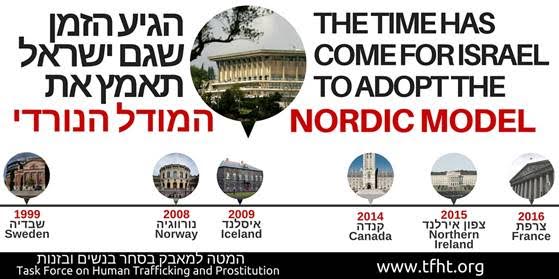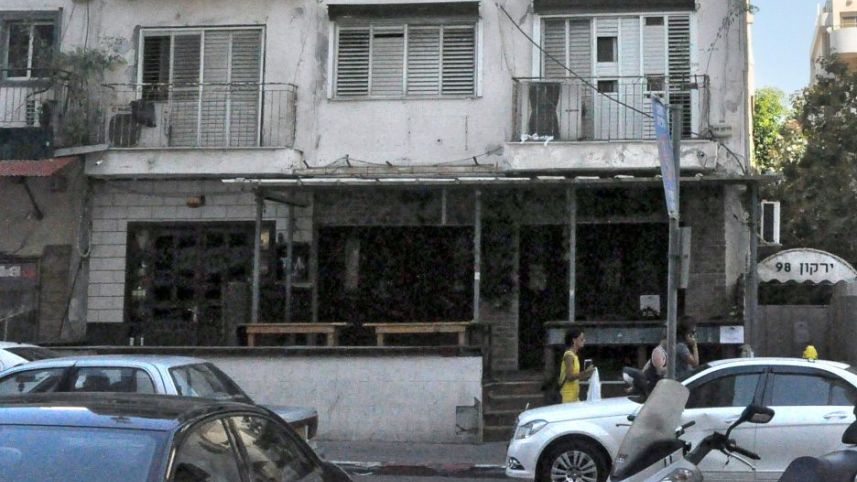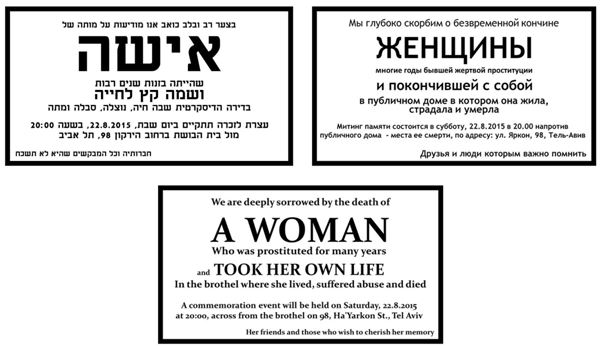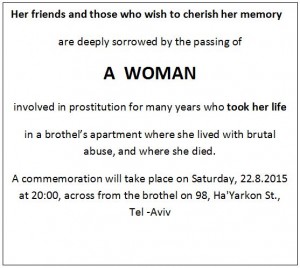This year, ATZUM is increasing its reach by joining the human resources connected to two of its initiatives, TFHT and Beit Midrash TAKUM. The former, as noted, is focused on passing legislation based on the Nordic Model; the latter is a nine-month, international social justice program integrating in-depth, Jewish learning with activism.
On March 22, 2016, three TAKUM volunteers – two law students and one social work student – collaborated with two different Hebrew University student union groups to organize a panel event attended by 50 people. The event was chaired by Adv. Michal Leibel, TFHT Director. Speakers included Tali Koral, CEO of Machon Todaa (Awareness Center), who spoke about the need to expose the actions and responsibilities of the customer in the abuse and demoralization of girls and women; and Re’ut Guy, Director of Youth in Distress at Elem, who focused on teen prostitution.
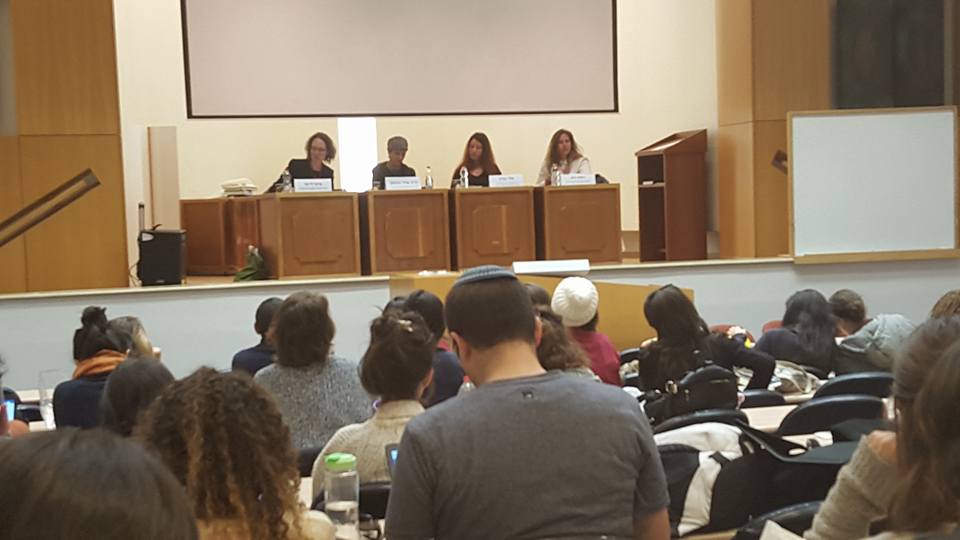
Photo: TFHT-sponsored panel discussion at Hebrew University, March 2016.
The keynote speaker was MK Shuli Moalem who addressed the moral imperative for Israel society to adopt binding legislation to render prostitution and the commoditization of women unacceptable. She related to data from a multi-year study of prostitution in Israel presented to the Knesset the same day. As reported in “Haaretz” on March 6, “The first-ever government survey into prostitution in Israel found…annual payments to sex workers amounted to an estimated 1.2 billion shekels ($308.2 million) in 2014. The survey by the [Social Affairs and Public Security Ministries] found there were between 11,420 and 12,730 prostitutes in Israel that year, 95 percent of them female. The data…showed that each sex worker had approximately 660 clients a year [and] as many as 1,260 minors were employed as prostitutes or at risk of [entering] prostitution.”
MK Moalem praised the TFHT event, emphasizing the importance of public discourse on a subject too rarely discussed. Indeed, before the event, most people admitted to being unaware that prostitution is legal in Israel. Most are now unwilling to allow it to continue under society’s radar.




